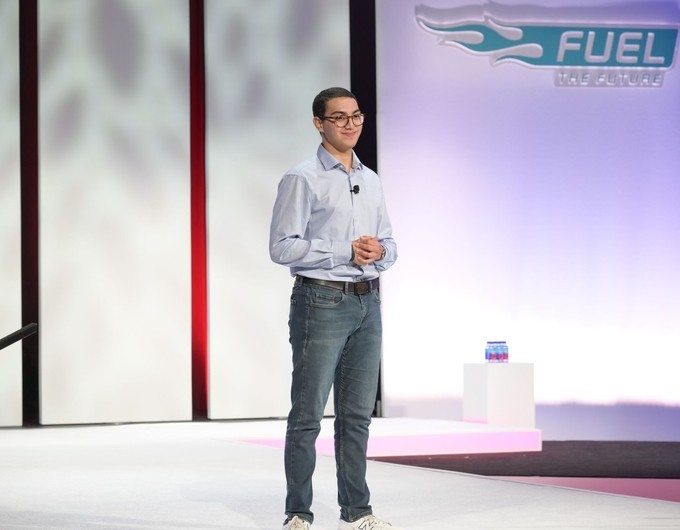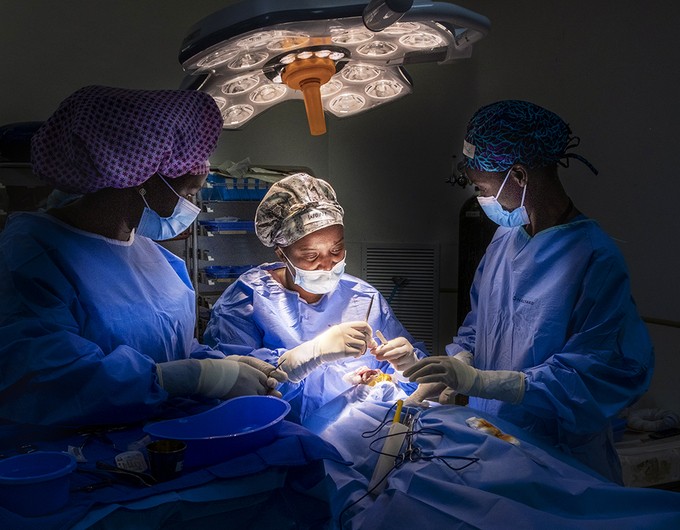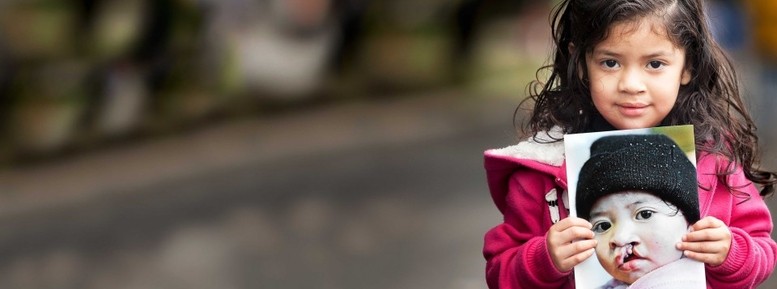Dana Nielsen-Ruiz spent over a decade serving Spanish-speaking patients as a bilingual speech pathologist in Texas before joining Operation Smile as a medical volunteer.
Although she has only been volunteering with Operation Smile for two years, Dana has already participated in five medical missions, sharing best practices in speech pathology with dozens of local medical professionals while also changing the lives of hundreds of Operation Smile patients. Read on for a question-and-answer interview with Dana about her experience as an Operation Smile volunteer.
Q: What inspired you to volunteer with Operation Smile?
A: When I was in graduate school, I saw a commercial for Operation Smile. I told myself that one day when I was fully licensed and credentialed that I would be a part of this amazing organization. I first contacted Operation Smile about volunteering in 2002, but I was told that I needed at least 10 years of experience in order to participate in a medical mission.
The Operation Smile team members that I spoke with encouraged me to apply again in the future. Over the years, serving as an Operation Smile volunteer continued to be on my mind. Every time I saw a commercial or advertisement, I thought to myself, “One day, I am going to be a part of Operation Smile.” In 2013, the day after Thanksgiving, I was watching television with my two boys when an Operation Smile infomercial came on. The infomercial was so touching that we all had tears rolling down our faces. My oldest looked at me and said, “Mommy, those people are just like the ones you help at work. You should really go and help them.” At that moment, I was inspired to finally complete the Operation Smile credentialing process.
Q: Why do you do what you do? Why do you feel the responsibility to take care of these children?
A: I have always loved serving those who are most in need of my help. The need for health care services in low-income countries is great and I know that I have so much to give. Serving as an Operation Smile volunteer feels like second nature to me. I am a Connecticut native who moved to the U.S./Mexico border to fulfill my dream of becoming a bilingual speech language pathologist.
The majority of the patients I see are Spanish-speakers. Living on the border (and being married to a Mexican citizen) has given me a deep understanding of Hispanic culture and I feel that I can truly relate to my patients and their families. Participating in Operation Smile medical missions in Latin America has given me the chance to combine my professional expertise with my cultural sensitivity. I have sincerely enjoyed my experience as an Operation Smile volunteer because of the opportunities it has given me to spread knowledge, understanding and love. To me, the best feeling in the world is to be able to say to a scared mother of a patient: “Todo va a estar bien, ya vera.” (Everything is going to be OK, you will see.)
Q: Is there a particular moment or patient from a medical mission that will stay with you forever?
A: One moment that will stay with me forever occurred during a medical mission in Tegucigalpa, Honduras. Halfway through the medical mission, a local labor and delivery nurse from Hospital San Felipe came running down to the section of the hospital we were utilizing. He said, “Acaba de nacer un bebe con esa cosa que ustedes hacen. Nos pueden ensenar a darle de comer?” (A baby was just born with that thing that you guys do, can you show us how to feed her?) He walked me over to the newborn nursery and I was able to feed the baby as well as give a short lesson on cleft lip and cleft palate bottles to the local doctors and nurses.
Q: Why is early surgical care a critical need?
A: Smiling, eating and speaking are things that the majority of us do every single day without much thought. Can you imagine these simple tasks being difficult? Can you imagine them being difficult for your own child? For someone with a cleft condition, surgical care is paramount because if left untreated, an infant or child can experience difficulty when eating and speaking. Unfortunately, surgery is not always an option for children in low- and middle-income countries where access to and the ability to afford medical care is a luxury. A child who is able to have his or her cleft palate repaired at a young age is more likely to develop clear and precise speech as opposed to a child whose palate is repaired later in life. It is much more difficult to help someone who received cleft palate surgery at an older age develop proper speech patterns.
Another reason early surgical intervention to repair cleft conditions is important is that it can improve a baby’s ability to receive adequate nutrition and hydration. Often we see babies that are malnourished because they have so much difficulty sucking or because material is expelled from their nose when eating and drinking. It always breaks my heart during medical missions to see an infant who is not able to receive surgery because he or she is too malnourished.
Q: From your perspective, describe the three biggest challenges or barriers to care for patients in your country or where you have worked.
A: Access to medical care is one significant barrier for our patients. It is astonishing to see how many people in low- and middle-income countries do not have access to medical care. Many people in these countries live in rural areas and have to travel (on foot, bus, boat, etc.) for days in order to reach a medical mission site. These families often share with us the hardship of having to travel so far. Some of these families end up spending all the money they have on transportation. Sometimes, an Operation Smile medical mission is the first time our patients have ever been taken care of by a doctor.
Another obstacle for our patients is that they often suffer from malnourishment, other underlying medical issues or severely compromised dental health (infections, abscesses, etc.) which prevents them from receiving cleft surgery.
The lack of acceptance of people living with cleft is a third major obstacle. Many of our patients have never been able to attend school because of their facial condition. Parents and teachers fear that children with cleft lip and cleft palate will be bullied. Often, it is the parents who decide to keep the child at home and other times, the school refuses to let the child attend because of their cleft condition. These children deserve to go to school, learn, make friends and participate in activities just like their peers and siblings. What kind of a future will these children have if they are denied an education?
Q: If Operation Smile didn’t exist in your country or places you have worked, what would those patients do?
A: If Operation Smile did not exist in the Latin American countries that I have worked in, the majority of the patients I have treated would most likely never be able to access cleft care.
Q: How has volunteering with Operation Smile impacted you professionally and personally?
A: Volunteering with Operation Smile has given me the opportunity to serve those with the greatest need while working alongside the world’s most selfless and dedicated medical professionals. I am so grateful to be able to share my experiences as an Operation Smile volunteer with my sons because it helps give my family important perspective. Often in my home, we get frustrated by the little things: "The battery is low on my iPad, Starbucks forgot the sugar in my coffee, I got a flat tire, and so on." We forget what it is like to really struggle to have your basic needs met. Recalling the significant challenges that my patients have had to overcome to access cleft care helps my family remember what is really important in life.
Latest Stories

A Former Patient, Aymane Now Shares His Story

What is Operation Smile's Nutrition Program?

